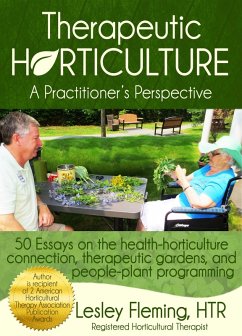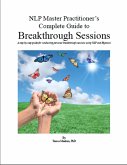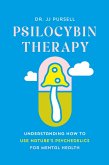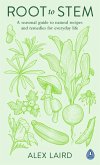Insights into therapeutic horticulture, a health profession that uses plant and plant-related activities to improve people's lives through passive or active involvement are presented in a collection of 50 essays. Programs for dementia, autism, eating disorder and other populations shed light on positive health outcomes, as does research, therapeutic gardens, tools, plants and treatment plans.
In the hands of trained practitioners, therapeutic horticulture can transform lives. Susan, with cognitive impairment feels smart while sharing plant information. Roy, a non-verbal 16 year old student on the autism disorder spectrum, interacts cooperatively with his school peers by passing them potting materials. Pam discusses her grief, her fear of dying and the cycle of life while working with a horticultural therapist transplanting new bromeliad pups. Truly inspiring, this nature-based programming with its science-based foundation is a powerful health modality that improves people's lives and well-being.
In the hands of trained practitioners, therapeutic horticulture can transform lives. Susan, with cognitive impairment feels smart while sharing plant information. Roy, a non-verbal 16 year old student on the autism disorder spectrum, interacts cooperatively with his school peers by passing them potting materials. Pam discusses her grief, her fear of dying and the cycle of life while working with a horticultural therapist transplanting new bromeliad pups. Truly inspiring, this nature-based programming with its science-based foundation is a powerful health modality that improves people's lives and well-being.
Dieser Download kann aus rechtlichen Gründen nur mit Rechnungsadresse in A, B, CY, CZ, D, DK, EW, E, FIN, F, GR, H, IRL, I, LT, L, LR, M, NL, PL, P, R, S, SLO, SK ausgeliefert werden.









